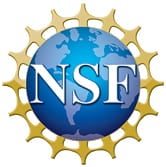About the Workshop
Climate change is one of the most important issues of our time. The consequences of a changing climate have implications for local and global economies and human health, and can exacerbate existing inequalities both within the U.S. and around the world. The current administration has committed to taking action to tackle this problem, and the scientific community has the opportunity to respond with both fundamental and applied research solutions.
Many of the researchers in the thermal community have focused on aspects of that problem and those solutions for years, including improved heat transfer mechanisms for higher efficiencies in energy systems, the food-energy-water nexus, and advanced material and flow behavior for renewable energy. It is time now to think even bigger, though, and look at more interdisciplinary collaboration to tackle even more significant aspects of this challenge.
In order to nucleate and promote this big-picture approach, the NSF-sponsored Heating Up, Cooling Down: Thermal Issues in Climate Change series of biweekly discussion sessions will be held that bring together researchers from throughout the thermal community, to find intersectional areas that need additional expertise to reach a level of better understanding. Each session will revolve around a general topic and feature four to six speed talks of no more than three minutes apiece. They will be followed by a brief general discussion, and then breakout rooms to delve more deeply into both potential collaborations and specific topics of interest that might evolve into future funding opportunities.
Learn more about the themes, sessions, and speakers, or register now.

Support for this workshop series was provided by the National Science Foundation: Chemical, Bioengineering, Environmental, and Transport Systems: Thermal Transport Processes.
Organizing Committee: Damena Agonafer (WUSTL), Ted Bergman (U. Kansas), Matteo Bucci (MIT), Melanie Derby (KSU), Neera Jain (Purdue), Andrej Lenert (U. Michigan), John Lienhard V (MIT), Laura Schaefer (Rice), Patricia Weisensee (WUSTL), and Shannon Yee (Georgia Tech)
